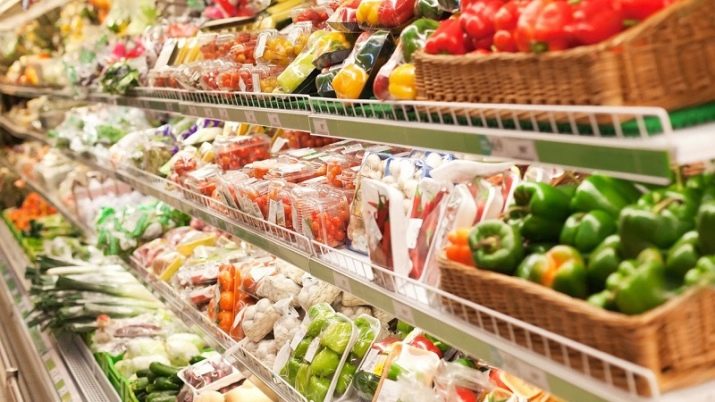All about the profession of a grocery seller

The sphere of trade is one of the most ancient areas of human professional activity. Accordingly, the profession of a seller has arisen quite a long time ago. Today in our article we will talk in more detail about the features of the grocery salesman vacancy.
What is this profession?
Generally speaking, the profession of a seller appeared in ancient times. However, this word itself was fixed in the everyday life of ordinary citizens only at the end of the 19th century. It was during this period that department stores began to operate on the territory of modern Russia, where sellers of both food and non-food products were involved. Before the appearance of the word "seller" directly, people who were directly related to trade were called differently. For example, the word “merchant” is widespread and well-known to this day.
If we try to give a definition to the term "seller", then we get that this is a person who works in any trade enterprise and provides customers with a number of services. As for the sellers of food products, they deal exclusively with products of the food group (hence the name of the profession). These goods include bakery, fruit and vegetable, confectionery, wine and vodka, dairy, meat, fish, egg, edible fats, oil products, tobacco products. Moreover, they are all subdivided into 2 large categories, namely: gastronomic and grocery products.
The seller's responsibilities include a large number of tasks that are associated both with direct interaction with buyers and with a number of other (for example, preparatory) work.In this regard, employers can nominate candidates for the position of a seller of food products. a wide variety of requirements.

Like any other professional activity, the work of a salesperson is characterized by both positive and negative features that you need to be aware of if you plan to connect your life with such a career.
The positive aspects include:
- the relevance and relevance of the profession (this can be traced if we analyze the currently open vacancies in the labor market);
- variety of work schedule (for example, salespeople can work both night and day shifts);
- lack of strict requirements regarding educational level.
As for the disadvantages, they traditionally include several main points:
- the physical component of the work (the seller spends most of the working day on his feet);
- a relatively low level of wages (material remuneration varies significantly depending on the specific place of work);
- a high level of stress (this is due to constant interaction with different people).
Thus, before making the final decision as to whether you want to connect your professional life with the work of a salesperson, you should carefully weigh all the pros and cons so as not to regret your decision in the future.

Responsibilities
The grocery seller, when selling food, acts in accordance with such official documents as job descriptions and professional standards. They include a list of responsibilities that fall on the shoulders of the employee. These include:
- sale of goods and products presented in the store;
- weighing, cutting and packing goods;
- advice to buyers regarding the shelf life and composition of products;
- informing clients about current promotions and special offers;
- records management;
- work with a cash register;
- compliance with the Labor Code;
- compliance with safety regulations;
- smoothing out conflict situations;
- control over the freshness and suitability for use of products;
- control over the availability of a sufficient amount of cash and change at the cash desk and much more.
It should be borne in mind that duties can be adjusted, changed and supplemented depending on the wishes of the employer and the specific place of work... It is very important to become familiar with the tasks that the employer entrusts to you, and to make sure that you have all the necessary competencies to perform them. Remember that in the event of failure to perform or improper performance of your functions, you may be held liable.

Requirements
According to such a document as a professional standard (or professional standard), in order to obtain the position of a seller, a person must have a certain set of knowledge and skills, in particular, he must know the theoretical base necessary for trading, as well as have the appropriate professional skills.
Traditionally, the employer puts forward the following requirements in relation to the sellers:
- knowledge of the laws and regulations governing trade activities (for example, consumer rights law);
- knowledge of the basics of psychology for effective communication with customers;
- understanding the rules for displaying goods on the showcase;
- knowledge of the rules for storing food;
- the ability to use cash registers and work in specialized computer programs (for example, 1C program).
At the same time, this list is not final, because the more you know and be able to, the more in-demand specialist you will be on the labor market.
Rights
Job description and professional standard - these are documents that include not only the responsibilities and requirements for food sellers, but also the rights of employees. These include:
- the right to receive from all employees of the store (administrator, director, manager and others) information that is necessary for the direct implementation of work;
- propose to superiors ways to improve the functioning of the enterprise;
- participate in various educational activities to improve qualifications.
However, with rights comes responsibility, so use the opportunities provided very carefully.

Education
Generally speaking, most employers do not have specific educational requirements for the salesperson. Usually a school leaving certificate (9 or 11 grades) is sufficient. At the same time, in some cases, having a diploma from a secondary specialized or higher educational institution will become an undoubted advantage (for example, in the case of receiving the 2nd category).
In addition, already in the course of direct work, it is desirable to take advanced training courses (for example, attending lectures to get acquainted with consumer psychology or studying the basics of commodity science). This will allow you to qualify for a promotion (such as becoming a senior salesperson).
Wage
It should be said right away that the seller's salary is quite low. This indicator can vary depending on several factors, such as:
- region of residence (as a general rule, residents of the capital receive more than residents of the provinces);
- place of work (the salaries of sellers of elite shops are higher than those of employees of chain enterprises);
- work experience and education (in some cases, the employer may increase the salary for highly qualified employees).
If we talk about the average salary of a seller of grocery stores in the Russian Federation, they amount to about 20,000 rubles.









